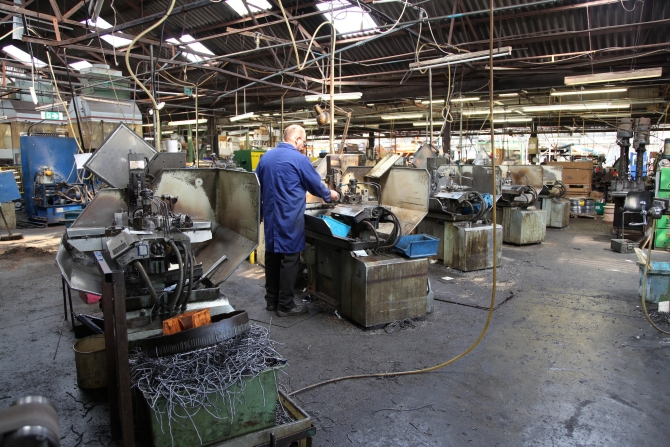Manufacturing has proven to be one of the greatest drivers of growth since the end of the recession, fuelling demand for industrial and warehouse property as firms expand to fulfil domestic and overseas orders.

However, according to accountancy and business advisory firm BDO, levels of confidence in the sector dipped for the first time in 14 months during June, leading industry experts to question whether the strong levels of growth since the end of the recession are truly sustainable in the long term.
The BDO Optimism Sub-Index, which forecasts growth expectations for the next six months, showed a drop in confidence to 119.5 in June from the previous month’s peak 121.0 result. While this remains well clear of the 100 mark, indicating that long term growth remains very much on the cards, the 119.5 reading is a clear sign that factors within the industry such as rising operating costs and a lack of highly skilled workers are taking their toll.
BDO partner and head of the firm’s Birmingham office, Richard Rose, claims that the result is not hugely concerning.
He says; “Manufacturers are under growing pressure from a shrinking pool of skilled workers and potential input cost increases, but confidence in the sector is high and firms are still looking to expand well above their long term trend rate over the next six months.
“This month’s dip in confidence is a rational response to the issues that businesses face and nobody should have expected the stellar growth we’ve seen in manufacturing so far this year to go on forever.”
Conversely, confidence within the service sector soared in June, reaching a reading of 101.9 from May’s more subdued 101.1 result. This, BDO believes, compensated for the slump in manufacturing confidence as the service sector is so much larger – in fact, it lifted the overall business confidence reading by 0.4 to 104.8 for June.
The question, then, is why services are enjoying a strong resurgence in confidence while manufacturing has dipped? BDO analysts claim that readings from the firm’s Inflation Index may be partly to blame, with the 97.9 reading in June largely unchanged from the previous month.
Mr Rose explains; “We still don’t know when interest rates will rise and businesses cannot plan for growth on the basis of vague or conflicting statements.
“Policymakers can do more to provide certainty for businesses, enabling them to make informed decisions for the future.”
Elsewhere in the BDO’s report, hiring intentions were shown to reach their highest level since the financial crisis struck, reaching a reading of 108.8 from May’s 107.7 result. Unfortunately, this too could spell trouble for manufacturers, as demand for skilled workers is likely to increase and therefore force firms to raise wages in order to attract the top talent.
With manufacturers continuing to invest in growth, it seems that the sector is set to continue to expand for at least the next six months. However, June’s results are a very real reminder that growth may, in the longer term, be inhibited by a lack of workers and rising production costs.
Previous Post
Smithfield Market Scheme Rejected